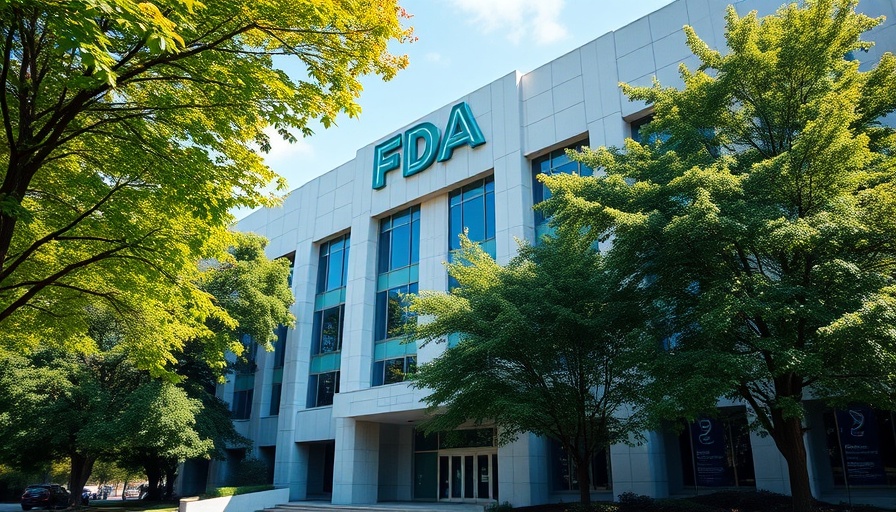
Concerning Consequences of FDA Layoffs in Medical Innovation
The recent announcement regarding significant layoffs at the U.S. Food and Drug Administration (FDA) has ignited substantial backlash from both industry leaders and lawmakers. The implications of these job cuts reach far beyond the immediate impact on the workforce; they pose serious threats to patient care and the regulatory processes that ensure the safety of medical devices, food products, and even artificial intelligence (AI) applications in healthcare. Concerns range from slower device approvals to compromised public health initiatives.
Federal Cuts and The Response
Part of a wider strategy under the last administration aimed at government efficiency, the layoffs particularly impacted the Center for Devices and Radiological Health (CDRH), an area of the FDA heavily involved in the review of medical devices and technologies. As noted by Scott Whitaker, president and CEO of AdvaMed, these job cuts could significantly hinder the agency's pace of approving new medical devices. Industry stakeholders and Senate Democrats, including Ron Wyden and Bernie Sanders, argue that this will have far-reaching consequences on public health and the United States' innovative leadership in medical technology.
Impact on Patient Safety and Practice Management
Patient concierge practices need to be especially attentive to these developments due to the potential trickle-down effects on patient care. Delays in regulatory reviews could lead to stagnation in obtaining essential medical innovations that benefit patients and practices alike. As such innovations may take longer to reach the market, practice management strategies may need to adapt to accommodate these shifts.
The Burden Shifts to Hospitals
Furthermore, there are implications for hospitals and healthcare systems when it comes to the regulatory burden. With a reduced number of FDA staff, responsibilities for ensuring the safety of medical devices and AI applications may increasingly fall on healthcare systems themselves, leading to added pressure on resources already strained by increasing demands and operational inefficiencies.
Desperate Measures and Increasing Pressure
The impact of these layoffs exacerbates an already precarious situation for the FDA. For instance, with the recent hire of new personnel in AI and medical device safety now jeopardized, crucial functions related to understanding and regulating emerging technologies are at risk. The loss of key staff, especially within small specialized teams, threatens timely decision-making and may even result in a cautious approach to approvals and safety mandates due to fear of drawing attention amid staffing uncertainties.
Actionable Insights for Concierge Practices
As healthcare providers navigate a fault line created by these layoffs, it is imperative for concierge practice owners to understand both the financial and clinical implications. Here are a couple of actionable insights:
- Stay Informed: Keep abreast of regulatory changes and industry reactions. Understanding the landscape will be crucial in making informed decisions that affect your practice.
- Advocate for Innovation: As a practice owner, supporting initiatives that promote medical innovation can help ensure the continued development of technologies vital for patient care.
Conclusion: A Call to Action for Stakeholders
The FDA layoffs have sparked not only concern but also widespread calls for action, urging stakeholders in medical technology, healthcare, and government to reconsider current pathways. Collaborative efforts in advocacy and reform are crucial to maintaining robust public health frameworks that safeguard both patient welfare and innovation in medical practice. As the dust settles, an opportunity remains to reshape how medical technology regulations can evolve amid a changing landscape.
 Add Row
Add Row  Add
Add 






Write A Comment